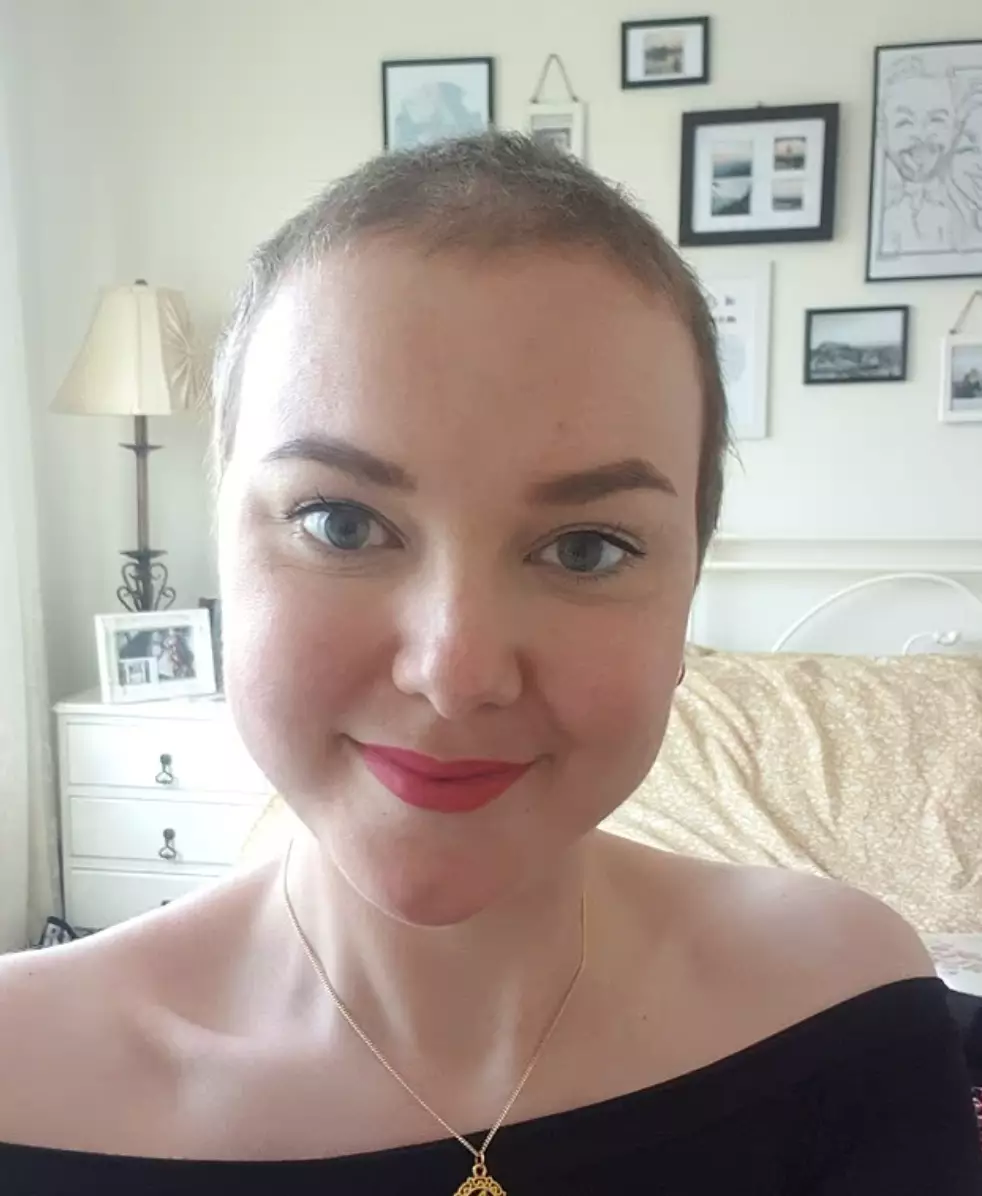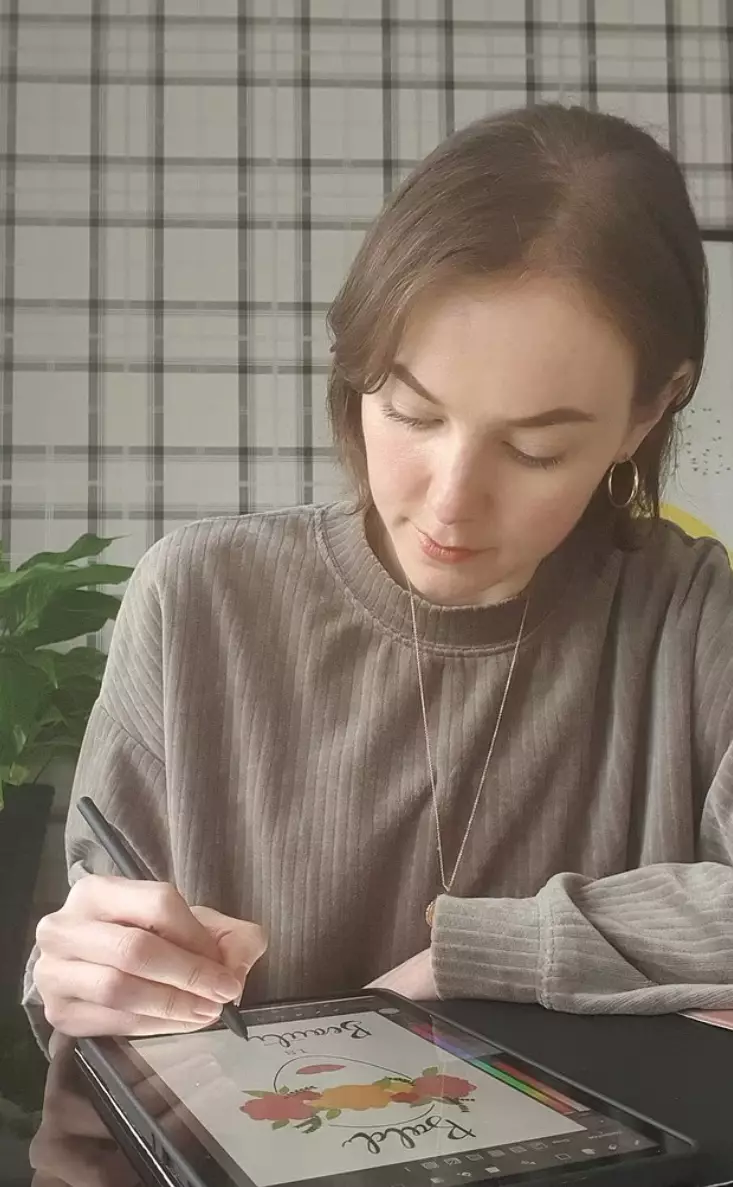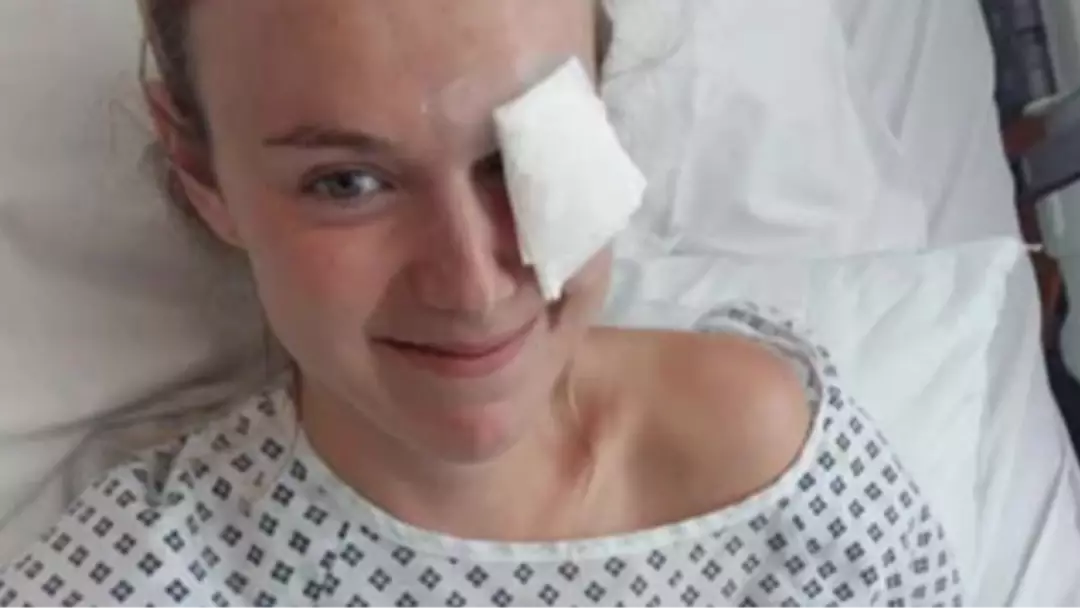In 2019, Abi Smith was on a flight to the United States when she first sensed something was amiss.
The 30-year-old from Stirchley, West Midlands, UK, was embarking on a vacation but noticed her vision blurring during the flight.
Initially, she dismissed it as a side-effect from the long-haul journey and didn’t dwell on it.
However, upon arrival in the US, Abi began experiencing additional symptoms that made her suspect something was wrong.
During her holiday, she lost mobility in her right leg, soon followed by her left leg, and had difficulty with her grip.
Realizing she could barely hold a kitchen utensil, Abi decided it was time to seek medical attention.

Abi visited a local hospital in the US and underwent a CT scan, though it showed nothing unusual.
When she returned to the UK, she went to Queen’s Hospital in Burton upon Trent for an MRI scan.
This scan revealed a serious issue.
Initially, doctors considered the possibility of a stroke due to her inability to move the right side of her body, including her eye.
However, the scan identified a glioma.
This malignant brain tumor was located at the base of her brain and had spread to her upper spine.
Reflecting on her diagnosis, Abi shared: “When I was given my diagnosis, I was on my own, and although I was terrified, I felt a sense of relief that the medical team had a plan.”
Symptoms of a glioma include headaches, seizures, nausea, vomiting, personality or cognitive changes, weakness or numbness on one side, and double vision, with prognosis varying depending on the tumor’s stage.

Abi’s tumor was in a location deemed inoperable, but in July 2019, surgeons managed to remove the portion on her spine.
She then underwent radiotherapy followed by six months of chemotherapy.
“Treatment was harsh, and I lost my hair,” Abi said. “It was a small price to pay for the amazing treatment that managed to considerably shrink my tumour.”
Abi continues to attend regular checkups to monitor her condition.
She also runs a greeting card business, The Cancer Card, donating a portion of each sale to support the Brain Tumour Research Christmas Appeal.
“More funding is urgently needed to understand, treat, and ultimately cure brain tumors,” she urged.
“This Christmas, I’m encouraging people to support the appeal. Every pound donated helps fund the breakthroughs we desperately need.”

